CORPORATE ACTION
2020 - THE YEAR OF SUSTAINABILITY INNOVATIONS IN PACKAGING
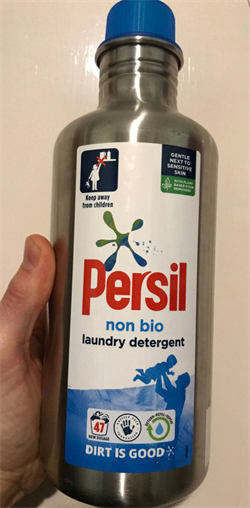 2020 saw many sustainability-friendly innovations in the field of packaging. Here are a few highlights…
2020 saw many sustainability-friendly innovations in the field of packaging. Here are a few highlights…Unilever made available its leading laundry detergent in refillable stainless steel containers as part of Asda’s sustainability store experiment in Leeds, UK.
Henkel worked with Albéato develop a fully-recyclable HDPE tube (including the cap) and will transition its entire oral care portfolio to it early 2021, beginning with the Licordel Polo brand in Spain. Henkel says the move will cover over 700 tons of packaging per year.
UK-Based smol sells a line of eco detergent and other products that it mails direct to consumers. It claims to have delivered to over a quarter of a million households and just completed a Series A funding totaling €8.8 million. In addition to laundry capsules, smol offers concentrated fabric conditioner, and dishwasher tablets.
Many innovations and advance are emerging in food and beverage categories. For example, Frugalpac’sFrugal Bottle, a paper-based bottle, is made from 94% recycled paperboard with a food-grade plastic liner to hold liquid. Another is Diageo’s 100% plastic-free paper-based spirits bottle developed by Pulpex, a sustainable packaging technology company. Kellogg announced a new can made from recycled paper, developed in partnership with retailer Tesco, for its Pringles brand of chips.[Image Credit: © Business360]
CORPORATE ACTION: Beiersdorf
Beiersdorf Plans To Launch Sustainable Cosmetics Packaging Using SABIC’s Renewable Polymers
 SABIC said Beiersdorf will use certified renewable polypropylene (PP) from the chemical company’s TRUCIRCLE lineup of “second generation” bio-based materials in its cosmetics packaging. Beiersdorf will introduce the new packaging products in 2021, replacing the packaging made from fossil-based virgin PP. SABIC said its certified renewable polymers, including different PP and polyethylene (PE) materials, come from animal-free and palm oil-free “second generation” renewable feedstock.
SABIC said Beiersdorf will use certified renewable polypropylene (PP) from the chemical company’s TRUCIRCLE lineup of “second generation” bio-based materials in its cosmetics packaging. Beiersdorf will introduce the new packaging products in 2021, replacing the packaging made from fossil-based virgin PP. SABIC said its certified renewable polymers, including different PP and polyethylene (PE) materials, come from animal-free and palm oil-free “second generation” renewable feedstock.[Image Credit: © Beiersdorf ]
CORPORATE ACTION: Colgate
Henkel Releases Almost 700 Million Bottles Made Of Recycled Plastics For Laundry & Home Care Products In Europe
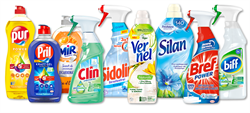 Henkel said it has used almost 700 million bottles made of 100% recycled plastics for its Laundry & Home Care products in Europe. Henkel used recycled materials from post-consumer waste, including Social Plastic produced from the company’s partnership with the Plastic Bank. The company says its efforts to expand its use of recycled material for its packaging help promote a circular economy, as well as protect the environment and prevent climate change. Also, all bottle bodies used in packaging of Henkel’s beauty brand Nature Box are made of 98% Social Plastic recycled materials.[Image Credit: © Henkel]
Henkel said it has used almost 700 million bottles made of 100% recycled plastics for its Laundry & Home Care products in Europe. Henkel used recycled materials from post-consumer waste, including Social Plastic produced from the company’s partnership with the Plastic Bank. The company says its efforts to expand its use of recycled material for its packaging help promote a circular economy, as well as protect the environment and prevent climate change. Also, all bottle bodies used in packaging of Henkel’s beauty brand Nature Box are made of 98% Social Plastic recycled materials.[Image Credit: © Henkel]
Colgate-Palmolive’s 2025 Sustainability Strategy Involves Three Major Thrusts
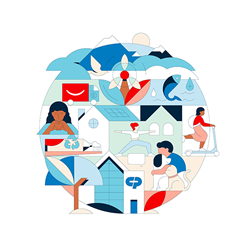 Colgate-Palmolive’s 2025 environmental initiative emphasizes sustainability and plastic recycling. According to the company’s chief sustainability officer, Ann Tracy, Colgate-Palmolive’s plastic strategy covers three areas: the possibility of using new materials; aiming for the use of plastic packaging that is 100% recyclable, reusable, or compostable; and the development of other ways of delivering products with potential for reduced packaging. The company’s website says it “will design and deliver zero plastic waste solutions for all Colgate-Palmolive products. We will eliminate one third of our New Plastics by 2025, and we will cut by half the amount of toothbrush plastic waste by 2025.”
Colgate-Palmolive’s 2025 environmental initiative emphasizes sustainability and plastic recycling. According to the company’s chief sustainability officer, Ann Tracy, Colgate-Palmolive’s plastic strategy covers three areas: the possibility of using new materials; aiming for the use of plastic packaging that is 100% recyclable, reusable, or compostable; and the development of other ways of delivering products with potential for reduced packaging. The company’s website says it “will design and deliver zero plastic waste solutions for all Colgate-Palmolive products. We will eliminate one third of our New Plastics by 2025, and we will cut by half the amount of toothbrush plastic waste by 2025.”Its new Colgate Keep line of manual toothbrushes feature a long-lasting aluminum handle, replaceable heads, and 80% less plastic, and come in a fiber-based packaging. Also, Colgate launched Optic White Overnight Teeth Whitening Pen that comes in a paperboard packaging with an inner tray made of 100% compostable PaperFoam. The whitening pen’s packaging also features a 24-point SBS sleeve supplied by Multi-Pack Solutions.[Image Credit: © Colgate-Palmolive]
CORPORATE ACTION: Henkel
Unilever Releases Recyclable Knorr Packaging Made From Recycled Plastic Waste
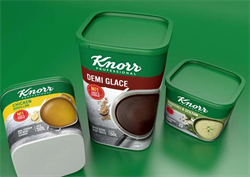 Unilever has developed new containers and lids that are 100% recyclable and made of recycled polypropylene plastic (rPP) for its Knorr bouillon powder. The company partnered with chemicals company SABIC, which uses a new recycling process to manufacture the rPP from recycled plastic waste, and Greiner Packaging, which transforms SABIC’s rPP into new recyclable packaging. SABIC’s rPP can be recycled for unlimited number of times, reducing the need for virgin plastic. Unilever aims to make about 1 million of the rPP containers and save about 2,000 tonnes of virgin plastic in Europe.[Image Credit: © Unilever plc]
Unilever has developed new containers and lids that are 100% recyclable and made of recycled polypropylene plastic (rPP) for its Knorr bouillon powder. The company partnered with chemicals company SABIC, which uses a new recycling process to manufacture the rPP from recycled plastic waste, and Greiner Packaging, which transforms SABIC’s rPP into new recyclable packaging. SABIC’s rPP can be recycled for unlimited number of times, reducing the need for virgin plastic. Unilever aims to make about 1 million of the rPP containers and save about 2,000 tonnes of virgin plastic in Europe.[Image Credit: © Unilever plc]
Henkel Consumer Units Create Own Innovation And Business Incubation Centers
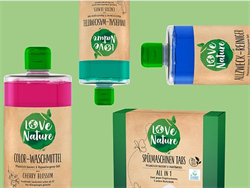 Henkel’s consumer business units Beauty Care and Laundry & Home Care have set up in-house “idea factory and incubator teams”. The company said these “entrepreneurs within the company” will combine nimble and innovative work approaches with Henkel’s scale and expertise as a global company. Some of the think tanks’ goals and objectives are to “anticipate upcoming trends, identify new business models and services, and develop product concepts” that will provide the company with growth opportunities. Henkel Beauty Care created its own incubator, the Fritz Beauty Lab, while Henkel Laundry & Home Care came up with Love Nature GmbH.[Image Credit: © Henkel]
Henkel’s consumer business units Beauty Care and Laundry & Home Care have set up in-house “idea factory and incubator teams”. The company said these “entrepreneurs within the company” will combine nimble and innovative work approaches with Henkel’s scale and expertise as a global company. Some of the think tanks’ goals and objectives are to “anticipate upcoming trends, identify new business models and services, and develop product concepts” that will provide the company with growth opportunities. Henkel Beauty Care created its own incubator, the Fritz Beauty Lab, while Henkel Laundry & Home Care came up with Love Nature GmbH.[Image Credit: © Henkel]
CORPORATE ACTION: L’Oréal
Sustainability, Performance, User Experience Drive L’Oréal’s Packaging And User Experience
CORPORATE ACTION: Nestlé
Nestlé Reveals $2.1 Billion Plan To Promote Food-Grade Recycled Plastic Packaging
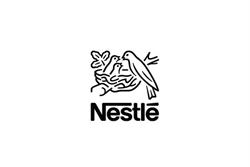 Nestlé said it will spend as much as $2.1 billion to encourage the plastics industry to expand production of food-grade recycled packaging. The company plans to allocate more than CHF1.5 billion to pay a premium for recycled plastic that is safe for use in food packaging. It also revealed other investments, including projects, including a CHF250 million venture capital fund focused on developing packaging technology. In 2020, Nestlé opened a research facility near Lausanne to develop environment-friendly packaging technologies.
Nestlé said it will spend as much as $2.1 billion to encourage the plastics industry to expand production of food-grade recycled packaging. The company plans to allocate more than CHF1.5 billion to pay a premium for recycled plastic that is safe for use in food packaging. It also revealed other investments, including projects, including a CHF250 million venture capital fund focused on developing packaging technology. In 2020, Nestlé opened a research facility near Lausanne to develop environment-friendly packaging technologies.[Image Credit: © Nestlé]
CORPORATE ACTION: Unilever
Unilever, Alibaba Group Join Forces To Build AI-Powered Plastic Recycling Plant In China
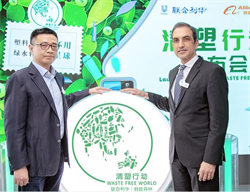
Unilever has partnered with Alibaba Group to launch the first large-scale closed-loop plastic recycling platform in China. The collaboration is called Waste-Free World and is part of Unilever’s initiative to deal with the underlying cause of plastic waste and think outside the box regarding packaging. The system uses AI to automatically classify and sort plastic packaging. It is designed to increase the speed at which high-quality plastic is put back into the circular economy.[Image Credit: © Unilever plc]
Unilever Develops Refillable Steel Case For Dove Deodorants
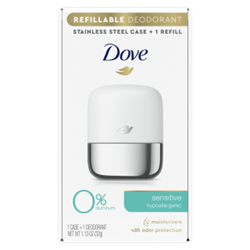
Unilever has developed a refillable stainless-steel case for its Dove brand of deodorants, as part of the company’s pledge to reduce its use of virgin plastic in half by 2025. The inserts used to refill the case contain 54% less plastic than the brand’s regular deodorant; however, 98% of the plastic used is recycled. The refillable deodorants will be sold in Target and Walmart stores in the US.[Image Credit: © Unilever plc]
CAMPAIGNS, COMMITMENTS & NGOs
Nonprofit Calls On Consumer Products Producers, Retailers To Commit To Reducing Plastic Use
Watchdog Decries UK’s Lax Y48 Plastic Waste Exports Policy
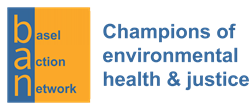 The international waste trade overseer Basel Action Network has criticized the UK government’s adoption of a policy regarding exports of Y48 plastic waste to non-OECD countries, arguing that it is weaker than the procedure adopted by the European Union. The UK said it will allow Y48 plastic waste to be exported to non-OECD countries if the shipments have been approved by regulators in the UK and in the non-OECD country receiving the shipments. BAN says the UK is a leading exporter of plastic waste to South East Asia, exporting 6,896 metric tonnes to countries, including Malaysia, Pakistan, and Vietnam, in September 2020.[Image Credit: © Basel Action Network]
The international waste trade overseer Basel Action Network has criticized the UK government’s adoption of a policy regarding exports of Y48 plastic waste to non-OECD countries, arguing that it is weaker than the procedure adopted by the European Union. The UK said it will allow Y48 plastic waste to be exported to non-OECD countries if the shipments have been approved by regulators in the UK and in the non-OECD country receiving the shipments. BAN says the UK is a leading exporter of plastic waste to South East Asia, exporting 6,896 metric tonnes to countries, including Malaysia, Pakistan, and Vietnam, in September 2020.[Image Credit: © Basel Action Network]
European Plastics Pact Releases Roadmap To Sustainable Use Of Plastic Packaging
 The European Plastics Pact, in partnership with the Ellen MacArthur Foundation’s international Plastics Pact network, has launched the European Plastics Pact Roadmap, which aims to coordinate and speed up the development of a European circular economy for plastics. Among the roadmap’s targets are the design for reusability and recyclability of all plastic packaging; responsible use of plastics; collection, sorting, and recycling of plastic packaging; and use of recycled plastics. The roadmap aims to deal with plastic pollution and mobilize Pact members to act and focus on achieving the group’s sustainability targets.[Image Credit: © WRAP]
The European Plastics Pact, in partnership with the Ellen MacArthur Foundation’s international Plastics Pact network, has launched the European Plastics Pact Roadmap, which aims to coordinate and speed up the development of a European circular economy for plastics. Among the roadmap’s targets are the design for reusability and recyclability of all plastic packaging; responsible use of plastics; collection, sorting, and recycling of plastic packaging; and use of recycled plastics. The roadmap aims to deal with plastic pollution and mobilize Pact members to act and focus on achieving the group’s sustainability targets.[Image Credit: © WRAP]
ALLIANCES, PARTNERSHIPS & JVs
Industry Groups, South Korean Government Launch Packaging Recycling Program For Cosmetics Companies
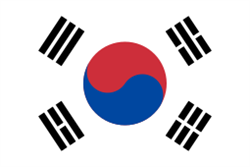 Korea Cosmetic Association and Korea Packaging Recycling Cooperative have announced the Reverse Recycling Scheme of Cosmetic Containers, a recycling program designed to help companies recycle 10% of their cosmetic packaging by 2025. The recycling program is made possible by a joint business agreement between KCA, KPRC, and the South Korean Ministry of Environment. The program will let cosmetic manufacturers or importers that use glass bottles, PET bottles, or other synthetic resin materials in packaging of their products apply to join the recycling program. It followed South Korea’s Act on the Promotion of Saving and Recycling of Resources, which became law in September 2020.[Image Credit: © Wiki Commons]
Korea Cosmetic Association and Korea Packaging Recycling Cooperative have announced the Reverse Recycling Scheme of Cosmetic Containers, a recycling program designed to help companies recycle 10% of their cosmetic packaging by 2025. The recycling program is made possible by a joint business agreement between KCA, KPRC, and the South Korean Ministry of Environment. The program will let cosmetic manufacturers or importers that use glass bottles, PET bottles, or other synthetic resin materials in packaging of their products apply to join the recycling program. It followed South Korea’s Act on the Promotion of Saving and Recycling of Resources, which became law in September 2020.[Image Credit: © Wiki Commons]
PACKAGING REDESIGNS
BPF, UKRI Collaborate To Promote Recycling And Sustainability In Plastic Packaging Sector
 The British Plastics Federation and the UK Research and Innovation are working together to help the plastics supply chain in the UK develop packaging that is more sustainable and easier to recycle than existing plastic packaging. The BPF and UKRI have developed two training courses designed for people working in the plastics packaging supply chain, including designers, manufacturers, retailers, and students. Training courses include a collection of environment-focused topics, such as the life cycle approach, causes of and solutions to marine litter, and principles of eco-design.[Image Credit: © British Plastics Federation]
The British Plastics Federation and the UK Research and Innovation are working together to help the plastics supply chain in the UK develop packaging that is more sustainable and easier to recycle than existing plastic packaging. The BPF and UKRI have developed two training courses designed for people working in the plastics packaging supply chain, including designers, manufacturers, retailers, and students. Training courses include a collection of environment-focused topics, such as the life cycle approach, causes of and solutions to marine litter, and principles of eco-design.[Image Credit: © British Plastics Federation]
3D Printing Lipstick Idea Offers Sustainable Way To Make Beautiful Lips
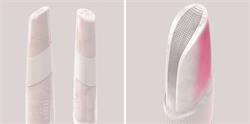 1HQ’s lipstick concept moi, a reusable product designed to print color on lips using an advanced inkjet technology, is envisioned to promote packaging innovation in the lipstick segment of the cosmetics industry. The UK-based branding and design agency believes the moi lipstick would allow consumers to customize color blends with ease using voice command and come up with personal designs, fades, patterns, and gradients when applying the lipstick. Also, 1HQ claims the concept shows that sustainable beauty is “more beautiful”, and the use of inkjet printing technology offers consumers venues for personalization and customization.[Image Credit: © 1HQ]
1HQ’s lipstick concept moi, a reusable product designed to print color on lips using an advanced inkjet technology, is envisioned to promote packaging innovation in the lipstick segment of the cosmetics industry. The UK-based branding and design agency believes the moi lipstick would allow consumers to customize color blends with ease using voice command and come up with personal designs, fades, patterns, and gradients when applying the lipstick. Also, 1HQ claims the concept shows that sustainable beauty is “more beautiful”, and the use of inkjet printing technology offers consumers venues for personalization and customization.[Image Credit: © 1HQ]
INNOVATION & TECHNOLOGY
Borealis, TOMRA, Zimmerman Collaborate To Open High-Tech Plastic Recycling Plant
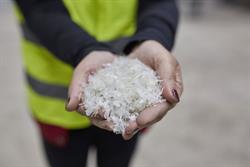 The chemicals company Borealis and recycling company TOMRA announced a new plant to demonstrate mechanical recycling technology in Lahnstein, Germany, working with Zimmerman, a waste management company. The recycling plant is designed to process rigid and flexible plastic waste from consumer households and transform it into Borcycle M grade recycled polymers with high purity levels, low odor, high product consistency, and light color fractions.
The chemicals company Borealis and recycling company TOMRA announced a new plant to demonstrate mechanical recycling technology in Lahnstein, Germany, working with Zimmerman, a waste management company. The recycling plant is designed to process rigid and flexible plastic waste from consumer households and transform it into Borcycle M grade recycled polymers with high purity levels, low odor, high product consistency, and light color fractions.Gian De Belder, Procter & Gamble’s Technical Director, R&D Packaging Sustainability said the supply of “high quality recycled plastic” is essential to ensure the industry can deliver a robust circular economy. De Belder said early results look “very promising” and the Borealis approach is showing the potential to “step-change both the quantity and quality of PCR”. Thorsten Leopold, Henkel’s Director International Packaging Technology Home Care, highlighted the challenge to make available high-quality recycled plastics and said Henkel was “very excited” that the project involves “three proven experts” to help take mechanical recycling “to a new level.”[Image Credit: © Borealis Group]
University Of Bath Researchers Make Polymer From Wood Sugars
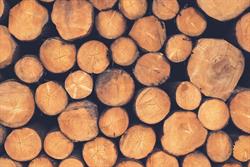 Researchers from the University of Bath’s Centre for Sustainable and Circular Technologies have derived a polymer from sugars in wood. The scientists revealed that the polymer, classified as a polyether, offers a range of applications, such as a building block for polyurethane, used in mattresses. Other potential applications include use as a bio-derived alternative to polyethylene glycol, which is a chemical used in bio-medicine, and to polyethylene oxide, which is occasionally used as electrolyte in batteries. The scientists suggested other applications could be created by binding to the sugar molecule other chemicals, such as fluorescent probes or dyes./[Image Credit: © Pixabay]
Researchers from the University of Bath’s Centre for Sustainable and Circular Technologies have derived a polymer from sugars in wood. The scientists revealed that the polymer, classified as a polyether, offers a range of applications, such as a building block for polyurethane, used in mattresses. Other potential applications include use as a bio-derived alternative to polyethylene glycol, which is a chemical used in bio-medicine, and to polyethylene oxide, which is occasionally used as electrolyte in batteries. The scientists suggested other applications could be created by binding to the sugar molecule other chemicals, such as fluorescent probes or dyes./[Image Credit: © Pixabay]
EMERGING IDEAS, THEMES & TRENDS
TerraCycle’s ReZound Device Uses Sound Clips To Encourage Recycling
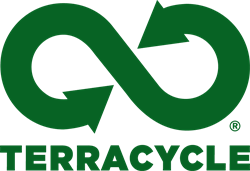
TerraCycle has developed ReZound, an audio device designed to be attached to recycling bins to encourage recycling through “positive audible feedback”. The device features 20 recycling-themed sound clips that play every time a recyclable material is put in the bin. TerraCycle’s ReZound can be used anywhere because it is weather- and tamper-resistant and has the option of being solar-powered.[Image Credit: © TerraCycle]
Food Sector Needs To Tackle Plastic Pollution, Food Safety And Waste As Related Issues
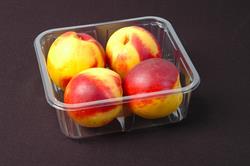 The food industry needs to see plastics, pollution, food safety, and food waste as interrelated and interconnected issues, and managed accordingly. Growing awareness of plastic pollution of the world’s oceans is driving consumers to find alternatives to plastic packaging and other single-use plastic applications. However, this push for reduced use of plastics is tempered by the fact that plastic packaging plays a significant role in food safety and prevention of spoilage. Meanwhile, food waste accounts for 21% of freshwater waste, 18% of cropland, and 19% of fertilizer use. Companies, including Kraft Heinz, are adopting packaging innovation to help deal with food waste and are combining these efforts with enhanced design for sustainability and recyclability.[Image Credit: © vedatzorluer]
The food industry needs to see plastics, pollution, food safety, and food waste as interrelated and interconnected issues, and managed accordingly. Growing awareness of plastic pollution of the world’s oceans is driving consumers to find alternatives to plastic packaging and other single-use plastic applications. However, this push for reduced use of plastics is tempered by the fact that plastic packaging plays a significant role in food safety and prevention of spoilage. Meanwhile, food waste accounts for 21% of freshwater waste, 18% of cropland, and 19% of fertilizer use. Companies, including Kraft Heinz, are adopting packaging innovation to help deal with food waste and are combining these efforts with enhanced design for sustainability and recyclability.[Image Credit: © vedatzorluer]
Cosmetics Industry Sees Significant Investments In Sustainability in 2020
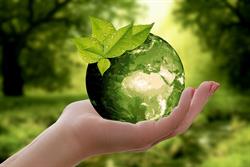 2020 saw many developments and innovations related to sustainability in the cosmetics industry. Although the pandemic had a significantly adverse impact on the market, it also helped strengthen the industry’s focus on a circular economy, with companies investing in sustainability initiatives. For example, Firmenich invested in recycling company Loop, while Beiersdorf joined the AAK Sustainability Partner Program. Henkel became the first company worldwide to complete a plastic waste reduction bond, valued at $70 million with a 5-year maturity. Nordstrom, Maybelline, and Boots launched recycling initiatives focusing on single-use plastic at the consumer level. Corporate investments in sustainability and environmental protection are expected to rise along with the expected recovery of the global economy.[Image Credit: © anncapictures]
2020 saw many developments and innovations related to sustainability in the cosmetics industry. Although the pandemic had a significantly adverse impact on the market, it also helped strengthen the industry’s focus on a circular economy, with companies investing in sustainability initiatives. For example, Firmenich invested in recycling company Loop, while Beiersdorf joined the AAK Sustainability Partner Program. Henkel became the first company worldwide to complete a plastic waste reduction bond, valued at $70 million with a 5-year maturity. Nordstrom, Maybelline, and Boots launched recycling initiatives focusing on single-use plastic at the consumer level. Corporate investments in sustainability and environmental protection are expected to rise along with the expected recovery of the global economy.[Image Credit: © anncapictures]
RESEARCH
Scientists Detect Microplastics In Human Placentas, Sound Alarm For Potential Health Implications

Researchers using Raman microspectroscopy have detected microplastics in human placentas for the first time. Results of the study revealed that 12 microplastic fragments were discovered in all placental portions: maternal, fetal, and amniochorial membranes. Microplastics contain substances, which can act as endocrine disruptors and cause long-term impact on human health.[Image Credit: © Skitterphoto]
Copyright 2026 Business360, Inc.

